Your wedding should be magical and flawless. However, it’s a costly affair, and planning that special day can be rather hectic. Nowadays, both the bride and the groom pay for the ceremony and reception instead of the traditional practice of the bride’s family shouldering all the expenses.
It’s critical to set and stick to a budget that works for you and your partner. To prevent overspending on your wedding, here are some suggestions for creating a reasonable budget while still meeting your long-term financial goals:
1. Think About The Style You Want
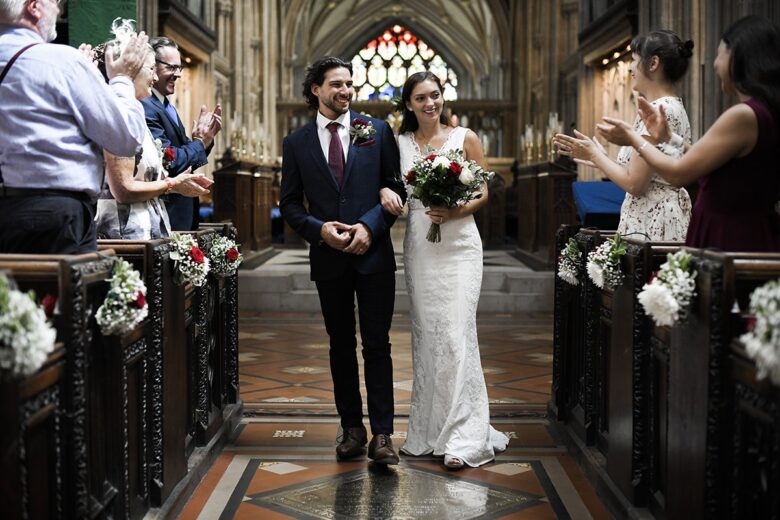
This is likely the one aspect of nuptial preparation you know how to do incredibly well. If that isn’t the case, then it’s time to start using your imagination. Do you and your spouse prefer a park picnic, an intimate city party, or a large gathering of friends and relatives? It might be tough to know where to begin when there are many different types of weddings and so much inspiration to select from.
Instead of focusing entirely on the details at first, you should concentrate on defining the tone for your big day. Consider the appearance, style, people, and emotions that’ll help you make your nuptials uniquely yours. Choose the cake, dress, and venue that suits your taste. If you plan to get married in Auckland, click here to find many beautiful venues in the area that may match your preferred theme.
To establish a firm basis for your wedding preparation, you must first define your life’s values and basic principles. Then, utilize those concepts when making decisions. Your wedding day vision should be influenced by your and your partner’s shared life values and goals.
2. Make A Budget Based On A Percentage

Consider how your starting point relates to every facet of your wedding now that you’ve decided on a specific style. While there are no hard and fast rules for how much money you should spend on each category, you may follow certain principles to stay on target. You probably don’t want to spend half your money on the band unless you’re okay with getting pizza for the reception dinner.
Many wedding planners and brides believe that breaking down their budgets into percentages is beneficial. For example, some brides may be ready to sacrifice a cake in exchange for a gown. Alternatively, some grooms may have their hearts set on a high-priced DJ or band; you can make budget cuts elsewhere to be able to afford exceptional musical talent. Here are some of the basic things you should prioritize:
Venue, Catering, And Rental Expenditures
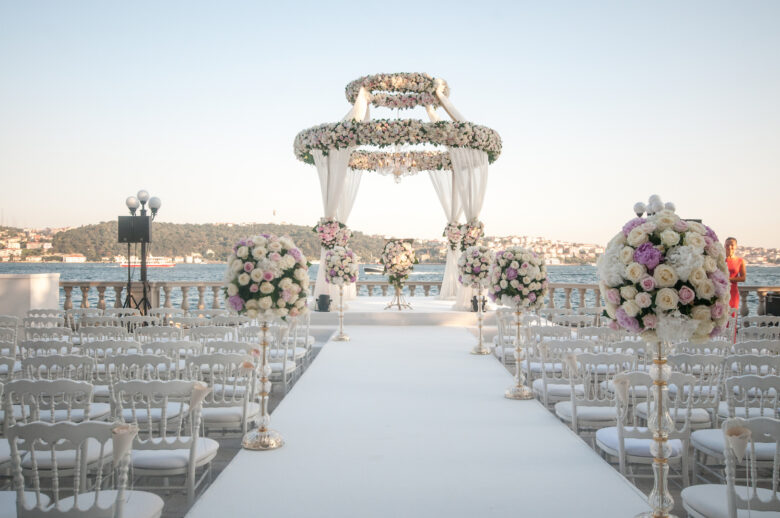
The cost of the venue is determined by several factors, including the sort of location you desire and the number of people attending. Larger venues will be more expensive, especially when a per-person cost is factored in. Almost certainly, more lavish, formal settings and popular, in-demand locations will be more expensive.
Photography, Videography, And Other Visuals
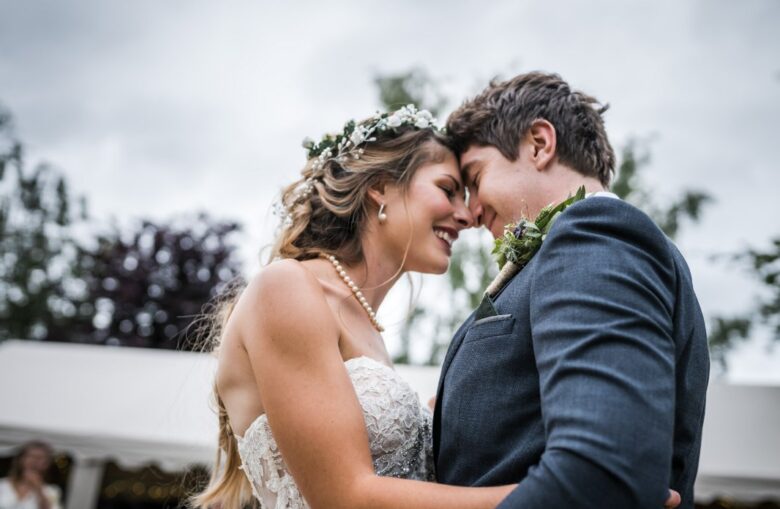
Set aside 10-15% of your overall budget for photography and videography. You can hire low-cost photographers, invite friends who are into photography, or encourage folks to take photos with their phones to save money.
Wedding Attire, Hairstyles, And Cosmetic

Every marriage is unique, so the amount of money spent on the ‘look’ of your wedding day will be as well. Hair, makeup, and other cosmetic services as well as wedding gowns and menswear should make up between 5% and 10% of your overall expenditure.
3. Determine Who Will Contribute
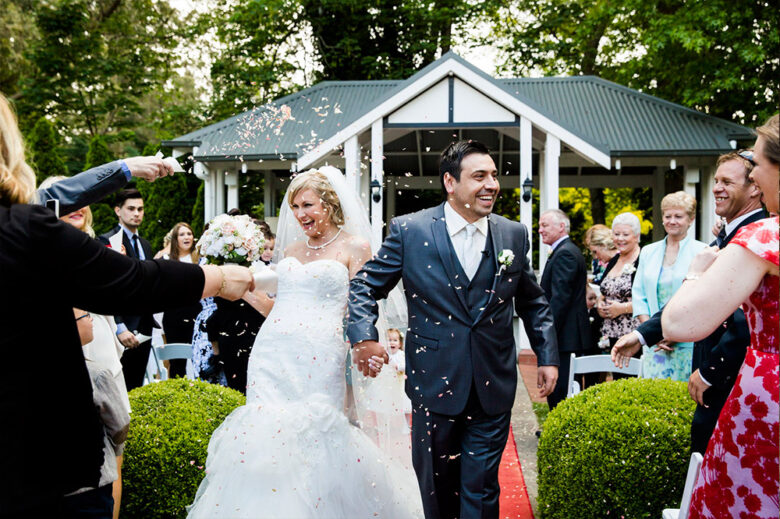
The traditional practice of the bride’s parents covering all of the wedding costs is becoming less common these days. The bride’s or groom’s parents, on the other hand, maybe willing to assist with some expenses. Your parents could be glad to help monetarily or by covering a portion of the wedding costs, such as the venue or caterer.
It’s crucial to learn about family members’ plans to contribute to the wedding costs even if it’s a touchy subject. Determine who’ll contribute and how much they can contribute. Keep in mind that any donations made by family members should be entirely voluntary and considered a lovely present. Thank your relatives if they assist you with your wedding expenses.
4. Be Willing To Make Budget Changes

You have to be ready to make any required adjustments or changes if certain sections of your budget are excessive. It takes discipline, but if you’re serious about not overspending, it’s occasionally necessary to do this. If you spent less than you anticipated, feel free to reallocate funds from one aspect of the wedding to another.
Be mindful that if you spend more than you expected, you may need to adjust and reduce your budget in other areas to compensate. For example, if you fall in love with the work of a photographer whose fees are a bit more expensive than you anticipated, you may need to deduct money from your dress or cake budget to make up the difference.
There are always do-it-yourself (DIY) choices you can consider if you need to cut costs. As a general guideline, prioritize line items that directly impact your guests’ experience over those that are beneficial only to you.
5. Negotiate With Vendors If Necessary
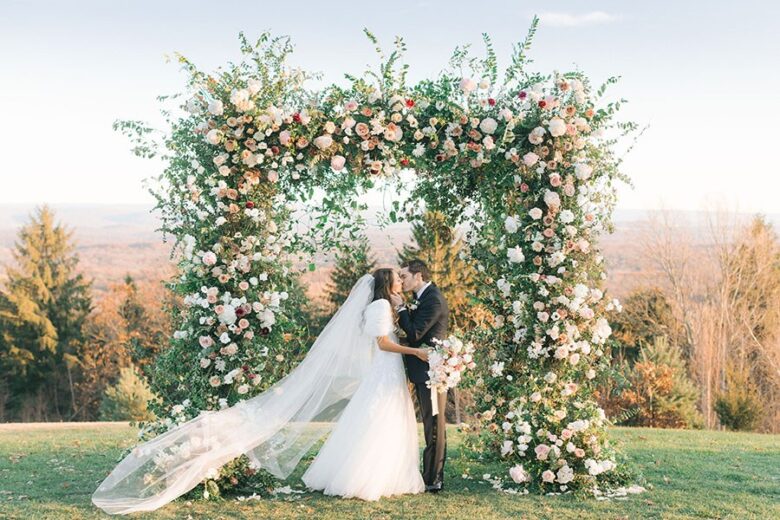
Everything is open to debate. Several providers will collaborate with you to create a plan that fulfills your requirements while staying within your budget. Consider the following scenario: you’ve fallen in love with a florist, but the minimum bundle price is higher than your floral budget.
Express your respect for her creations while recognizing that you’re working with a limited budget. The florist will almost certainly work with you to create a package you can afford. Other vendors are in a similar situation. You may save money on photography by hiring a professional photographer who can do multiple tasks rather than hiring many of them.
So what’s the bottom line in all of this? If you have a friendly attitude and are eager to negotiate, you should be able to work something out with any merchant. And if you promise to pay in full and in advance, that would also encourage vendors to yield to your requests.
Takeaway
Planning your wedding is one of the most fun and time-consuming endeavors you’ll ever do. Consider your vision for it and the amount of money you have to set aside for the occasion when coming up with a solid wedding budgeting plan.

